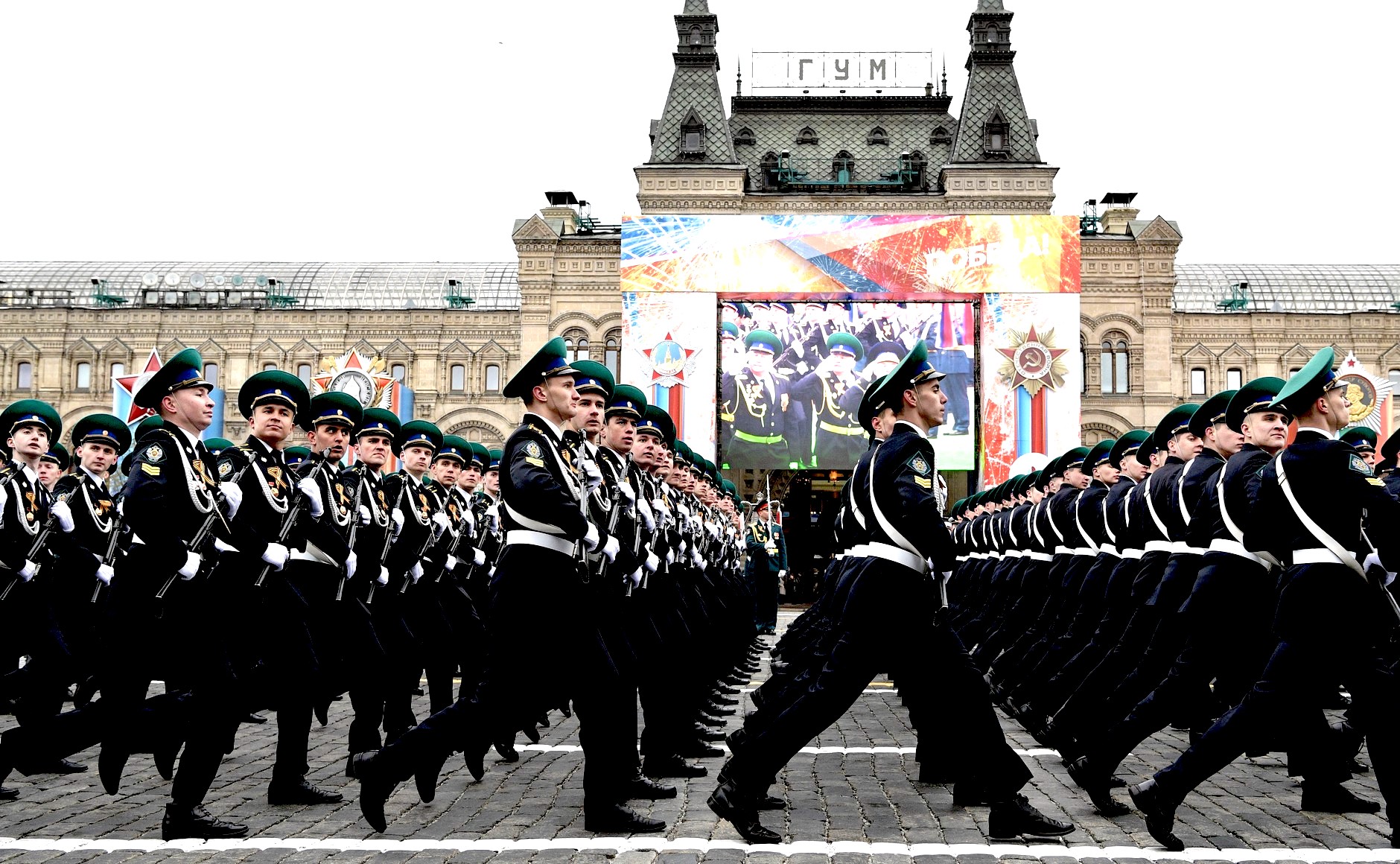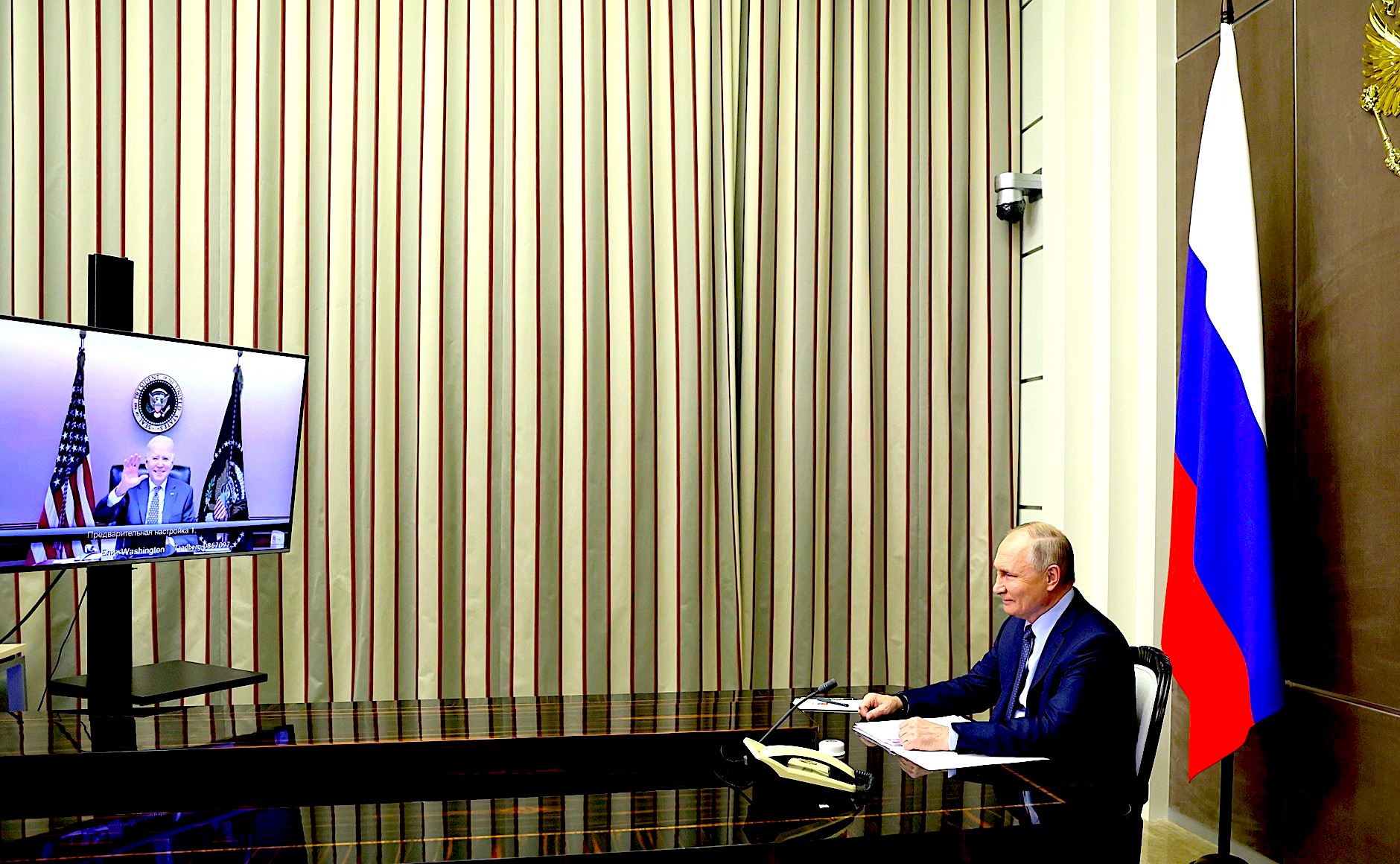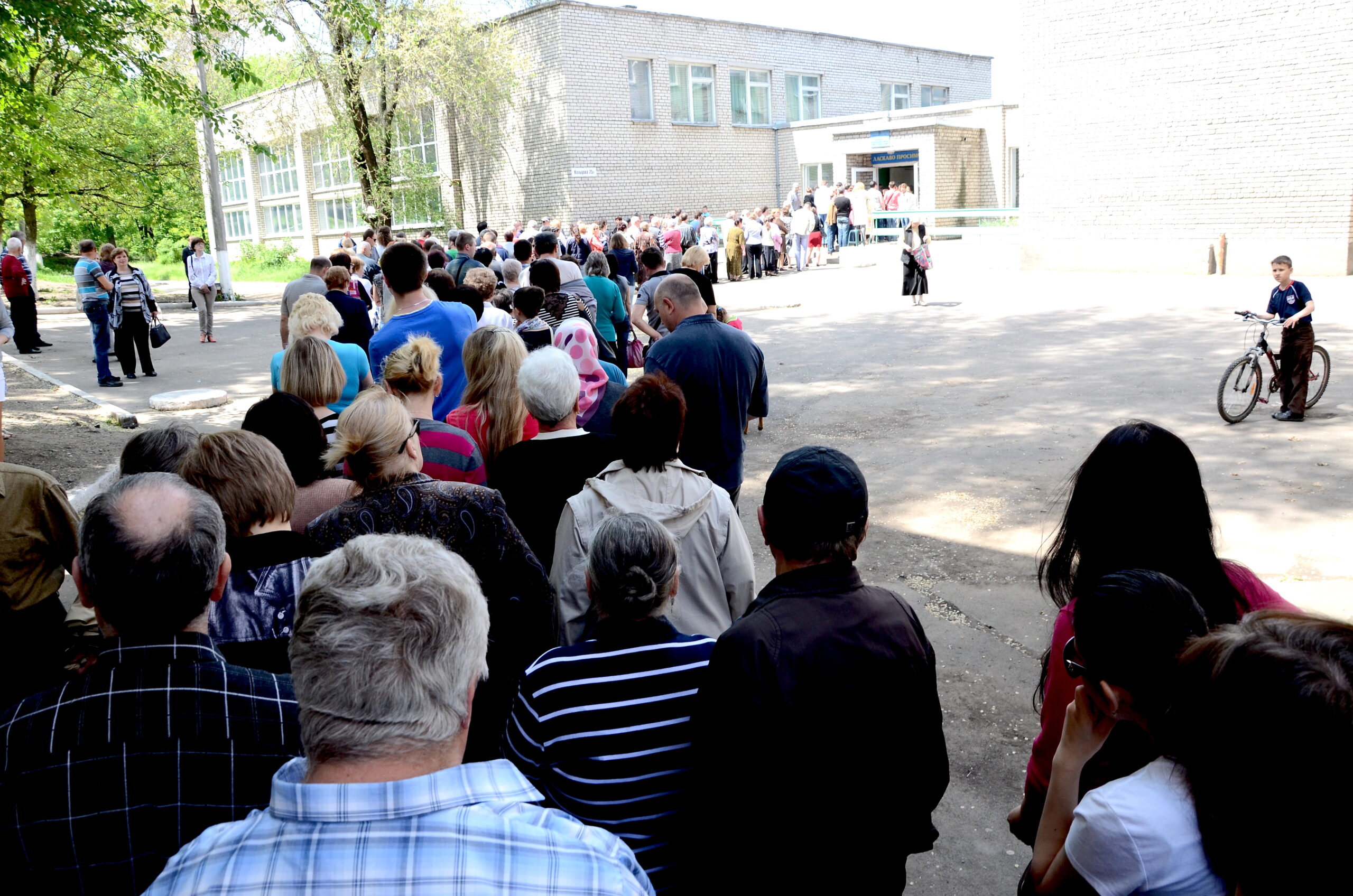
By Joe Lauria, Consortium News, 2/13/24
Amongst the condemnations that were hurled at Tucker Carlson and Vladimir Putin even before their interview was aired, was this gem from an unnamed European foreign affairs spokesman to The Guardian:
“A spokesperson for the European Commission said it anticipated that the interview would provide a platform for Putin’s ‘twisted desire to reinstate’ the Russian empire.
‘We can all assume what Putin might say. I mean he is a chronic liar,’ said the EU’s spokesperson for foreign affairs. …
‘[Putin] is trying to kill as many Ukrainians as he can for no reason. There is only one reason for his twisted desire to reinstate the now imperialistic Russian empire where he controls everything in his neighbourhood and imposes his will. But this is not something we are able to tolerate or are willing to tolerate in Europe or the world in the 21st century.’” [Emphasis added.]
The article warned that Carlson’s interview could actually be deemed “illegal” under last year’s European Digital Services Act. The Guardian says:
“The law is aimed at stamping out illegal content or harmful content that incites violence or hate speech from social media. All the large platforms, bar X, have signed up to a code of conduct to help them accelerate and build their internal procedures in order to comply with the law. …
The onus is on platforms to ensure content is lawful, said a spokesperson for the digital tsar, Thierry Breton. … If a social media platform does not comply with the new EU law it can be sanctioned with a hefty fine, or banned from operating in the EU.”
The Russians Are Coming … Again

Military parade on Moscow’s Red Square, May 2017. (kremlin.ru, Wikimedia Commons, CC BY 4.0)
After the interview, the Western media predictably dismissed it for a variety of reasons, including that it promoted Russian “imperialism.” The Economist wrote that Putin’s
“obsession — Russia’s historical claim to Ukraine — is backed by a nuclear arsenal. … He denied any interest in invading Poland or Latvia (though he previously said the same about Ukraine).”
Western rhetoric about a resurgent “Russian imperialism” dates back to 2014, when Russia assisted Donbass in resisting the U.S.-backed unconstitutional change of government in Kiev. Western officials sought to characterize Russia’s action as an “invasion” that was part of a grand scheme by Putin to reconstitute the Soviet Empire and even threaten Western Europe.
In March 2014, a month after the coup without making any reference to it to explain Russian actions, Hillary Clinton compared Putin to Adolf Hitler. The Washington Post reported:
“‘Now if this sounds familiar, it’s what Hitler did back in the ’30s,’ Clinton said Tuesday, according to the Long Beach Press-Telegram. ‘All the Germans that were … the ethnic Germans, the Germans by ancestry who were in places like Czechoslovakia and Romania and other places, Hitler kept saying they’re not being treated right. I must go and protect my people, and that’s what’s gotten everybody so nervous.’”
March 19, 2010: U.S. Secretary of State Clinton, Ambassador Beyrle and Under Secretary Burns with Russian Prime Minister Putin during a meeting at the Novo-Ogaryovo just outside Moscow. (State Department, Public Domain)
Clinton later tried to talk down any comparison to Hitler beginning his conquest of Europe by saying Putin was not that irrational. But the notion that the Russian president is trying to reconstruct the Soviet Empire — and then threaten Western Europe — is often repeated in the West.
The Atlantic Council has been in the forefront of keeping this idea afloat.
Reconstituting the Soviet Empire would involve bringing the Central Asian Republics, Azerbaijan and Armenia, let alone the Baltics and the former Warsaw States, now part of NATO, under Moscow’s control.
A slew of articles since Russia’s 2022 invasion have harped on this theme, for example, in The Hill: “The US Has a Chance to Defeat Russian Imperialism for Good;” Foreign Policy: “The Inevitable Fall of Putin’s New Russian Empire;” and Salon: “How Russian Colonialism Took the Western Anti-Imperialist Left for a Ride.”
The absurdity of the notion of a threat to the West by Russian “imperialism” is underscored every time many of these same Western leaders and media ridicule how disastrously Russia has performed on the Ukrainian battlefield and how, in the words of Ursula von der Leyen, the EU Commission president, Russia must resort to washing machine parts to keep its military going.
How can Russia be so weak and incompetent and yet be such an imminent and menacing threat at the same time?
The late Russia specialist Stephen F. Cohen dismissed these fears as a dangerous demonization of Russia and Putin. Cohen repeatedly explained that Russia had neither the capacity nor the desire to start a war against NATO and was acting defensively against the alliance.
“How can Russia be so weak and incompetent and yet be such an imminent and menacing threat at the same time?”
This is clear from the decades-long Russian objection to NATO expansion (which Putin raised with Carlson), coming in the 1990s when Wall Street and the U.S. dominated Russia, asset-stripping the formerly state-owned industries and impoverishing the Russian people, while enriching themselves.
It is clear from Russia backing the Minsk Accords, which would have left Donbass as an autonomous part of Ukraine, and not rejoined to Russia.
And it is clear from the treaty proposals to NATO and the United States offered by Russia in December 2021 intended to avert Russian military intervention. The West rebuffed Russia on all three diplomatic initiatives.

Dec. 7, 2021: U.S. President Joe Biden, on screen during video call with Putin. (Kremlin.ru, CC BY 4.0, Wikimedia Commons)
While realists in Washington and Europe increasingly admit Ukraine is losing the war, neocon fantasists, desperate to keep it going, have revived the theme of the Russian threat to the West to counter congressional reluctance to throw away more money and more lives.
Trumped-up fear of Russia has served U.S. ruling circles well for more than 70 years. The first three National Intelligence Estimates of the C.I.A., from 1947 t0 1949, reported no evidence of a Soviet threat, no infrastructure to support a sustained threat, and no evidence of a desire for confrontation with the United States.
“Trumped-up fear of Russia has served U.S. ruling circles well for more than 70 years.”
Despite this, in 1948 a war scare was drummed up to save the U.S. aircraft industry, which had nearly collapsed with the end of the Second World War.
Then came the 1954 bomber gap and 1957 missile gap with the Soviet Union, now accepted as deliberate fictions. In 1976 then C.IA. Director George H.W. Bush approved a Team B, whose purpose was again to inflate Soviet military strength.
George Kennan, the former U.S. ambassador to Moscow and America’s foremost expert on the Soviet Union tried to counter such exaggerations, including late in life when he opposed NATO expansion in the 1990s.
Now we are being asked again to believe another fictional story of a Russian threat to the West in order to save U.S. and European face — and Joe Biden’s presidency.
It is instead a projection to cover up its own authentic imperialism and the West’s perceived threat to Russia, a big part of what Putin was trying to get across in the Carlson interview.
Revanchism & Imperialism

The Donbass status referendums in May 2014. (Andrew Butko, CC BY-SA 3.0, Wikimedia Commons)
The issue at hand is the fundamental difference between imperialism and revanchism. Western critics purposely or ignorantly confuse the two to serve their interests.
Succinctly, the difference is this: imperialists take control of a country that does not want them there and resists. A revanchist wants to absorb former imperial lands where the population is largely the same ethnicity and welcomes the revanchist power to protect them from an outside threat.
Yes, Hitler was being revanchist in his defense of the German-speaking Sudetenland in Czechoslovakia. But it was a first step in an imperial design to conquer countries that ultimately resisted him. Clinton’s effort to roll back her comments to say Putin is not as irrational as Hitler was her attempt to tamp down a suggestion that Putin wanted to conquer Europe as Hitler did.
“The issue at hand is the fundamental difference between imperialism and revanchism. Western critics purposely or ignorantly confuse the two to serve their interests.”
To call Putin’s move on Ukraine “imperialist” is to say Russia had never conquered those lands before and that he might indeed keep going to conquer lands Russia has never controlled: i.e., Western Europe.
Russian imperialism in Ukraine took place nearly 250 years ago under the reign of Catherine the Great. That was when the Russians defeated the Turks and occupied what came to be known as Novorossiya. Putin went back further than that to make Russian claims and he has been open about his feeling that those lands and Russia are one. He spoke at length about it in his interviews with Oliver Stone in 2017.
Despite these revanchist or irredentist positions on Ukraine, Putin did not act on them until 2022. Carlson asked Putin twice why he didn’t move on Ukraine earlier if he held these views and twice Putin evaded the question. The Western media is saying that Putin is lying about acting to defend the Russian speakers of the Donbass; that he was motivated by territorial expansion.
Putin was acting both to defend Donbass’ Russian speakers (who were under imminent renewed attack in February 2022) and also saw the opportunity to reunite the old imperial lands with Russia. That opportunity was seen in the Kremlin as a necessity because of the West’s rejection of Moscow’s diplomatic efforts to avoid conflict.
Given the results of the four regional referendums in 2022, plus the one in Crimea in 2014, it is clear the people of those regions wanted to rejoin Russia after the coup and the revival of Ukrainian extremism.
One can condemn or criticize revanchism, but one cannot call it imperialism.
Joe Lauria is editor-in-chief of Consortium News and a former U.N. correspondent for The Wall Street Journal, Boston Globe, and other newspapers, including The Montreal Gazette, the London Daily Mail and The Star of Johannesburg. He was an investigative reporter for the Sunday Times of London, a financial reporter for Bloomberg News and began his professional work as a 19-year old stringer for The New York Times. He is the author of two books, A Political Odyssey, with Sen. Mike Gravel, foreword by Daniel Ellsberg; and How I Lost By Hillary Clinton, foreword by Julian Assange. He can be reached at joelauria@consortiumnews.com and followed on Twitter @unjoe
“Despite these revanchist or irredentist positions on Ukraine, Putin did not act on them until 2022. Carlson asked Putin twice why he didn’t move on Ukraine earlier if he held these views and twice Putin evaded the question. ”
I noticed too, and was surprised. It seems an easy answer:
“The world is an unfair and often unjust place. What the USA does to Syria are war crimes, but the cost of rectifying this injustice now may be far higher than waiting for time to work at it. Similarly, the acts of Lenin, Stalin, Khrushchev, and Yeltsin in total were a grave injustice to the Russian peoples who were delivered into the not so tender mercies of Revanchist Western Ukrainian powered by the CIA and USA. However, you can see the terrible cost being paid now because the USA forced this last resort upon us. Even now it would be better if this bloodshed could be stopped, but it profits America to kill, and so it must go on.”
Seems someone in the Kremlin did not do their homework preparing the president, or there are deeper schemes afloat that I know not of.